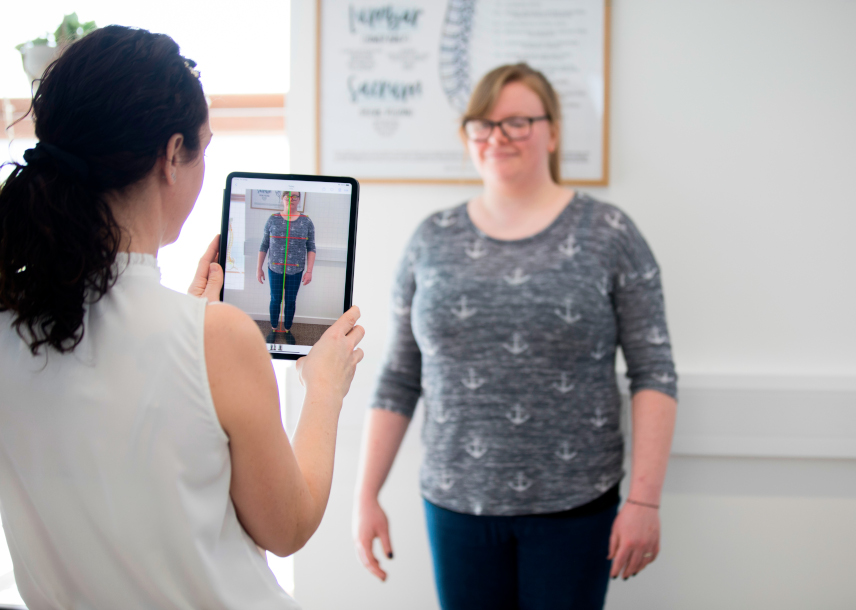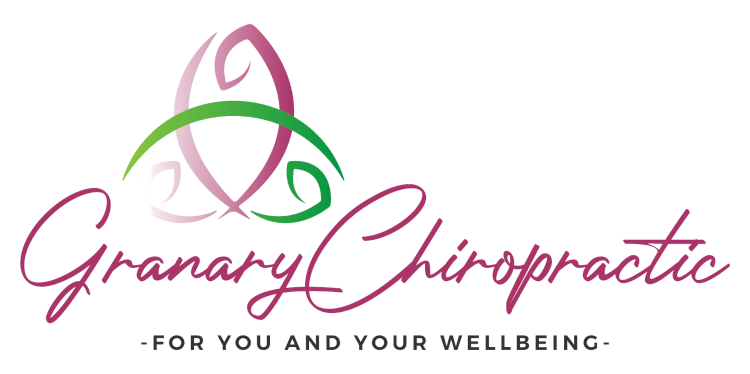
Self-Acceptance, Body Image and Calories
These are concepts that I have struggled with personally for many years. I want to dive into the idea of positive change and find out if the changes we are making to the way we live are done to better our mental and physical health, rather than to change the way we look. How do we find that all important self-acceptance, in ourselves generally but more specifically in relation to our body image?
Self-esteem and body image have some crazy statistics and our online life seems to exacerbate the issue. Social media appears to make school age children feel less confident about their appearance and how interesting their life is, while older eighteen to twenty-four year-olds say that their social media feeds make them feel less attractive. As much as 93% of women when analysed said they engage in toxic self-talk. We convince ourselves that our success is simply luck and being in the right place at the right time and as a result we are terrified that our shortcomings will be exposed. This puts us into a state of constant fear of not being truly enough.
The same sense of unworthiness seems to find its way into the world of body image and dieting. When questioned women often say that most of the time, they are trying to lose weight. This is almost matched with the number of men saying it. Finding acceptance of ourselves and moving away from a notion that certain bodies have more value than others can be difficult, especially with such easy access to everyone’s lives online and the culture of constant comparison that exists as a result. I do think that we must remember that what we see online is a highlights reel, or a best of, rather than the minute-to-minute insight into someone’s life that it can appear to be. Rarely ever do you see the whole picture. How often do you see the children smiling eating ice-cream in a picture when a few minutes earlier they were screaming that they wanted lollies instead of ice-cream and a few minutes later they are covered in a sticky mess and accusing each other of having a bigger scoop.
When it comes to moving past comparisons and finding a more positive image of ourselves, I firmly believe that we need to start by finding a better connection to ourselves. In this way we can reclaim a happier, more consistent relationship with cooking, eating, exercising and nourishing ourselves.
Shifting the focus to nurturing your body rather than on depriving it of something or a lack of something helps break the negative cycle of restricting our lives to look a certain way. Shifting to a positive mindset helps us to sustain a healthy lifestyle and increase our health. You remove the guilt and truly enjoy eating, exercising and simply being in your body.
Some days you may be cold and miserable, and you are simply tired and hungry, so have a satisfying dinner such as a stew or risotto and snuggle up at home. If another day you have loads of energy and want to pack in the nutrients, maybe a big salad and lots of vegetables after a run might be the answer. It doesn’t come down to good food or bad food it comes down to listening to what your body knows and what will make you feel good at that moment in time on that day. Every day is different, our emotional state fluctuates, our hunger levels go up and down, the amount of movement we get in a day changes and so on. It makes more sense to tune into the impact of what we cook, what we eat, what we think and how we move.
Becoming a mother has really helped me to re-define the way that I see the body. Appearance feels so much less important than it ever did before and setting a healthy attitude for my children when it comes to body image and creating good habits around mealtimes has become even more important. I try to help my children understand that loving themselves is vital and together we work towards finding an acceptance in our physical self without judgement.
This idea works on the premise that while loving every part of ourselves is a beautiful concept it still means focusing on our physical body and aesthetics a lot when we should be aiming to move past that and just let it be. It becomes more a question of what you want to be known for, do you want to be known for being the person with abs and shiny hair, or someone that is really kind, clever, hard working and diligent. Do you want to be someone who always shows up for their friends? That’s not to say we can’t enjoy going to the gym and eating healthily and want to feel good in our body, it just means not getting too hung up on it and seeing ourselves and our attributes as part of a much bigger picture. I mean, why do we love our friends? Is it because of their long legs or because of their great laugh? Is it because they support us lovingly and consistently or because they are good on a bike? We don’t tend to put those around us in the same limiting boxes that we sometimes create for ourselves and when you put this in such a simple way, the idea of defining ourselves by our looks feels a little mad too.
I understand that it is easy to talk about these concepts and that being more accepting of ourselves can only be a good thing, but the question is how do we do it? How do we make what we eat a delicious satisfying part of our life and how do we make our movement and exercise fit into this category, rather than something negative or all consuming? How do we feel comfortable in our own skin while we do it?
Diet culture is changing. Focusing on a natural, whole foods diet and eating more vegetables is less about aesthetics and more about creating a way of cooking, eating and living that feels genuinely enjoyable and therefore sustainable for the long term. Something that you enjoy and something that makes you feel good physically and mentally every day is far easier to stick to.
Recently I tried calorie counting and looking at my macro breakdown to see if I could improve my diet and my relationship with food. However, I found that both were bad for my mental well-being but also for my health. The first thing I need to say here is that part of the reason that I stopped calorie counting and looking at my macros was because my daughter started to watch what she was eating as well. She is seven years of age! So, let’s look at what calories are. A calorie isn’t a thing, it’s simply a unit of energy. A calorie essentially measures the amount of heat needed to raise the temperature of one gramme of water by one degree Celsius. When we discuss calories, we often look at the calorie balance, or more simply, how many we need to take in versus how much we expend. This poses a variety of issues since it is far too simplistic.
Our bodies are complex biochemical systems, where a calorie isn’t just a unit of energy. When looking at how things are absorbed by the body, we need to ask, are all calories created equal? Is an avocado equal to a chocolate bar? The short answer is no and that is why calorie counting can be an inaccurate and unhelpful way of looking at what you are eating. Each food has its own unique thermic effect, which is the number of calories needed by your body to digest, absorbed and process the nutrients. Everybody is as unique as our personalities, which inevitably means that we will use calories differently. Comparing an avocado which has more fibre, fat and a plethora of other ingredients to a basic chocolate bar which has a lot of sugar and different kinds of fat in is just illogical. Nutritional science is not straight forward and the food we eat must undergo a complex process in the body, which takes time and involves a lot more interactions than a simple mouth to stomach pathway. Instead of looking at calories we should be focusing on nutrients, how many colourful pieces of fruit and vegetables, beans, pulses, nuts and seeds we are eating rather than the numbers. Now that’s not to say we shouldn’t enjoy the chocolate, if it is part of a balanced, intuitive way of living, but it’s a great example of why we shouldn’t make our decisions based on the number on the back of a packet, because the numbers don’t tell you all you need to know.
Current science also suggests that the gut microbiome often holds the answer to why different people develop different diseases. The gut impacts our health and well-being on a scale far beyond what we can imagine. Every single body has a unique microbiome, and the microbiome determines how we react when we eat food. We have come to understand that every body will respond to the same meal differently. Even if we live in the same place and eat the same thing as each other, even if we were identical twins, we would still react differently. How we react to a meal is determined by our microbiome and therefore is incredibly complex. Reducing food to just carbohydrates, fat, protein, and calories is far too simple and the much-used concept of weight loss being calories in versus calories out or in simply exercising more, just isn’t valid anymore. This in turn highlights why one person can eat one thing and lose weight, while someone else will eat the same meal and gain weight. Our guts are different and how we react to calories is very different, so focusing on a calorie count won’t necessarily help us in any way and simply highlights why there will never be a one size fits all and why we all need to do what feels right to us as individuals.
The only blanket advice with regards to this that I can give is to look after your gut microbiome and that means aiming to include thirty different plant-based foods in your diet each week, as this greatly assists the microbiome diversity in our gut.
Ultimately, having said all of that, it all goes back to the old age wisdom but ever so slightly boring concept of balance, or trying not to see anything in isolation when it comes to creating a healthy mind and a healthy body. You need to make recipes, ideas, exercise, and lifestyle changes fit in with what works for you. Implementing something new or making a change is often difficult and asking yourself if this is right for me can make all the difference. Can you imagine yourself doing it in five year’s time? Are you truly enjoying it and is it really making you feel good? Short term diets, quick fixes, calorie counting and macro watching never seem to work. Practising a deeper acceptance of yourself and how you want to truly turn up in the world can make a difference. But ultimately make sure that what you do is done in a kind, loving, slow and gentle way.
Love Kat, x


